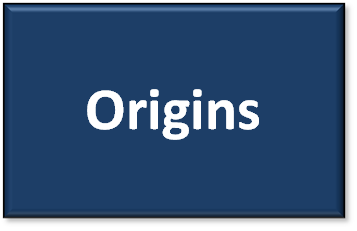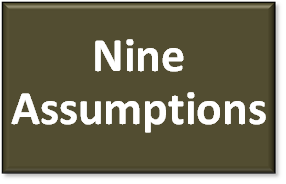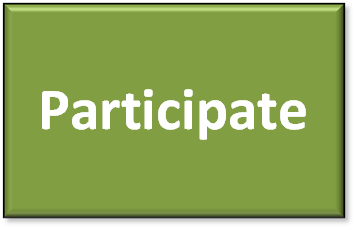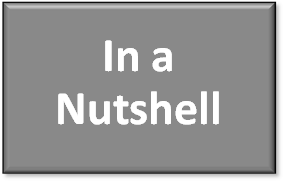For decades we have judged our schools primarily on their ability to teach subject-specific skills needed for success in careers. In the process we have largely overlooked asking them to teach the core concepts needed to
become an engaged citizen.
This has put our democracy in peril.
The goal of the PostPandemic Curriculum Project
The most pressing public policy issues facing us have a foundation in knowledge developed in the last several decades and in information that has long been excluded from standard school curriculum. It is difficult to make sense of climate change, nuclear weapon strategy, disease spread, inter-group bias, economic planning, etc. without some basic grounding (not expertise) in the language and concepts of computer modelling, brain functioning, feedback loops, world history, comparative religions, cognitive distortions, and game theory among others.
The goal of the PostPandemic Curriculum Project is straight-forward:
- to identify these core concepts that will enable citizens to meaningfully participate in discussions of public policy, and then
- to incorporate these core concepts throughout K-16 education and spread them widely in the adult population.
People and institutions have limited capacities, including a limitation on the number of concepts that they can keep in mind at a given time.
Cluttering this precious “concept-space” with concepts that have little or no effect on the state of the world is more than wasteful. It does active harm, like using operating room space to store surplus football uniforms instead of surgical equipment, blood supplies, and ventilators.
It seems to me that we are still asking our schools to focus on concepts that may have been important in the past, while putting aside many concepts which citizens need to understand, and deal with, the critically important challenges facing society today.
It is time for us, and our schools, to shift our focus.
Generalist citizens as well as skilled specialists
We have asked our schools to train specialists, those who often encounter the same or similar challenges repeatedly. This lets them rapidly make sense of the situation facing them and react with precision, especially when they are confronted by a variant that they haven’t seen before. For decades our schools have filled this role superbly.
But this focus has left many of us without the more general skills and concepts that we need as citizens when confronted with complex public policy challenges, each of which is unique, and most of which are outside of our narrow area of expertise. This often leaves us in the dark, unsure of how to evaluate the evidence and advice of specialists, to listen to the opinions of fellow citizens, to effectively add your own views to the discussion, to look beyond our short-term personal needs.
Long ago we should have identified those concepts and skills that students would need as citizens, to make sense of the world around them. It has become urgent that we do this now.
The “concept gap” exposed
Catastrophes expose vulnerabilities. Successful societies take note and, after the catastrophe passes, take action.
CoVid-19 has exposed a”concept gap” that has made it very hard for many of us to understand the warning signs and expert information about CoVid-19. In the absence of core concepts, even clear statements of rapidly changing information leave people anxious, confused, or mistrustful, and too often complacent. Absolutist statements, even those unsupported by evidence, stated with enough bluster and certainty gain traction. Alarmist hyperbole gets people’s attention, but spreads unnecessary panic and anxiety. Confusion and mistrust increases. We yearn for certainty, and when none is to be found, confidence in our democratic institutions erodes.
In the case of CoVid-19, misconceptions (by politicians, opinion leaders, and the public) about five core concepts are seriously affecting our response to CoVid-19:
• exponential growth,
• mechanisms of disease transmission,
• population demographics,
• predictable cognitive distortions, and
• computer simulations as insight generators (rather than oracles that predict the future).
At this moment the concept gaps related to CoVid-19 are the most obvious. But they also exist for many other pressing issues, including climate change, criminal justice, taxation, inter-group hatred, nuclear weapons, and privacy protection.
Citizenship skills: then and now
150 years ago we insisted that our schools equip students with the knowledge and skills needed by engaged citizens in an accountable democracy. At the time this didn’t amount to much more than ensuring that they had the 3r’s. (Canada’s 1901 census lists only 13,268 high school and fewer than 7,000 university students). The pace of life, communications, and innovation were all dramatically slower than they are today. Telegraphs and railways were cutting edge technologies. Most political issues (other than war) were local.
But as times changed, democratic societies failed to consider how the skills needed by an engaged citizen in democracy were changing. The primary focus of schooling became job preparation and supporting a strong economy. Little effort has been taken to identify the handful of concepts needed by today’s citizens to make sense of the public policy challenges facing them. Somehow, we thought that citizenship skills would spontaneously emerge with little to no preparation. We are paying the price for this neglect in the weakening of our democracy.
Schools as incubators of excellence
From the beginning we also gave our schools the mandate to filter students by interest and ability, and then give them the specialized training needed for a career. They have been spectacularly successful in fulfilling this second central mandate, constantly adapting to keep up with changes in society and technology.
This long-standing focus of using schools to train the next generation of specialists has driven explosive innovation, dramatically increasing life span, slashing infant and maternal mortality. Where once it was the secondary mandate, it is now seen as almost the sole purpose of our schools. And while it is critically important to help students identify and prepare them with the specialized knowledge that they’ll need for a career, it is only half the picture. As CoVid-19 is reminding us, a healthy society needs collective understanding and support, as well as individual expertise and initiative.
A language gap has grown between citizens and specialists
Because of the imbalance in the mandate that we’ve given our schools there are gaps in the shared language and concepts we need to sustain effective respectful civil discourse. The language and preoccupation of most types of specialists, including those engaged in the business of government, have diverged from those that engage those not involved in the given specialty. Most important challenges facing us are complex and require the involvement of a diverse range of specialized knowledge to properly understand. Some of this knowledge is very new tentative. Some of it is deeply counter-intuitive. Integrating this range of information requires considerable communication. But as common concepts and language diminish, successful communication becomes increasingly difficult.
Some citizens with a stake in an issue make the significant effort to educate themselves, but most citizens on most issues disengage, sometimes trusting their “leaders”, sometimes in frustration believing them to be corrupt, often indifferent until an issue intrudes upon their lives.
Democracy is an inherently slow, deliberate, and often messy, process with many more ways for things to go badly than opportunities to make major gains. Long-term success depends less on the presence of a few high-profile leaders than on the ability of the vast majority of its citizens to engage meaningfully in public policy deliberations. (In contrast, the success or failure of an autocracy or dictatorship rests largely on the decisions made by a very few unaccountable leaders.)
Politics as sports; Citizens as fans
Gradually we’ve evolved from diffuse local gossip to concentrated national media companies, from actual communities to virtual networks. Fewer, more distant and louder, voices with greater geographic reach have come to dominate our public conversations. With this, our focus has shifted away from locally-elected from “ordinary” legislators (MPs and members of Congress) to national leaders (Prime Ministers, Presidents). Power has shifted in this direction too. Driven by these pressures and the absence of robust civil policy debates, we have increasingly come to accept that it is natural for our governments to take uncompromising, often arbitrary, stands. Adjusting positions in response to changing circumstances becomes that worst of political crimes, the “flip-flop”.
In these circumstances an effective political strategy is to focus on a few easily defined wedge issues with enough emotional punch to create an “us vs. them” identity. This creates a base and delivers votes, even if there are many more important challenges facing society. For citizens not wanting to completely disengage from politics, the corresponding strategy is to back a “team” (usually this means backing the highly visible leader) without reservation. In this way citizens become “fans” with a strong vertical relationship to their “team” rather than a respectful horizontal relationship to their fellow citizens. This sort of vertical relationship is the hallmark of authoritarian societies.
Even between elections the language of sports, of winners and losers, particularly that of horse races and odds, encouraged by the media, has come to overwhelm meaningful discussion of policy.
A role for schools
This trend isn’t something new that is taking us by surprise. It has been visible for decades. We could have given our schools the task of counteracting this tendency. We did not. As the demands of citizenship grew increasingly more complex, we could have insisted that our schools equip students to effectively participate in democracy, to meaningfully engage in policy discussions, understanding that these involve uncertainty and that there are no clear “right” answers. We did not. We could have asked our schools to train their students to look past immediate problems and the politicians involved, to not rush to obvious answers. To become comfortable with ambiguity and making trade-offs. We did not.
Instead, in our drive to use narrow “accountability measures”, we have insisted that our schools require students to find the one correct answer to precisely-defined questions, often from a multiple-choice lists, that much must match the expectations of their teachers. By insisting this of our schools, we have inadvertently asked them to contribute to the undermining of our robust democracy.
The goal of the Post-Pandemic Curriculum Project is to begin the process of identifying the core concepts needed by citizens as the first step towards developing new curriculum around these concepts.
The PostPandemic Curriculum Project site is a work-in-progress.
I strive to write for the reader, to choose words that help ideas find a willing home in the reader’s thinking, but this time I have deliberately chosen to fall short of this goal. Clarity matters but so does timeliness, and have bowed to the reality that “The perfect is the enemy of the good”.
By giving temporary priority to quantity over quality I have inflicted on you my regrettable affection for nested subordinate clauses, run-on sentences, and interesting, to me at least, digressions (often enclosed in brackets or between commas). Many of the related concepts will eventually fall victim to the Delete key. Others, the lucky ones, will find new life in their own concise sentences.
My apologies for any rough patches that you will encounter. I hope to repair them over time.
Opting for volume has also led me to post a site with important policy issues and core concepts absent. I am working to fill these holes. Once that task is mostly done, I will return to the job of editing. Although I suspect that the current core concepts will survive these revisions largely intact, this may not always hold true. My thinking has evolved over time and it will certainly continue to change. As it does, I will re-write the sections affected to reflect my new thoughts.






